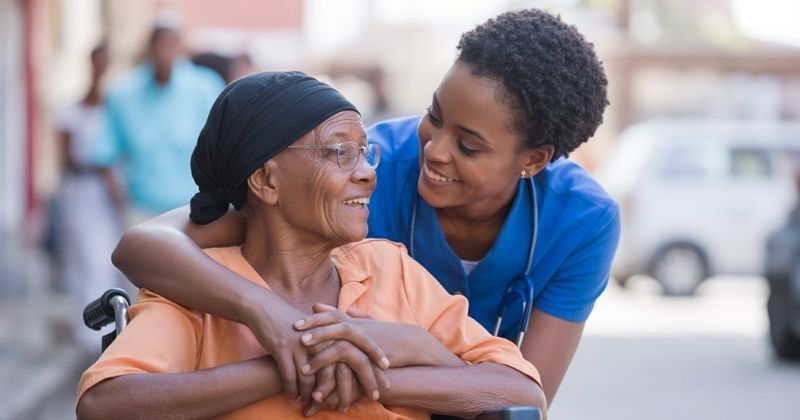
The South African Social Security Agency (SASSA) provides millions of South Africans with monthly financial support through various social grants. These payments are a crucial source of income for older persons, individuals living with disabilities, caregivers, foster parents, and unemployed citizens who qualify for the Social Relief of Distress (SRD) grant. For October 2025, the confirmed payment dates have been released, giving beneficiaries certainty about when they can expect their funds.
Key Takeaways
- October 2025 Payment Dates: SASSA has confirmed that the Older Person’s Grant will be paid on 2 October, the Disability Grant on 3 October, the Children’s Grant on 6 October, and the SRD R370 Grant between 24 and 30 October.
- Grant Eligibility And Adjustments: All SASSA grants are subject to income-based means tests, with updated payment amounts introduced in April 2025, except for the SRD grant which remains under review.
- Collection Options: Beneficiaries can access their grants through bank transfers, the SASSA Black Card, SAPO branches, or retail outlets such as Pick n Pay, Shoprite, and Boxer, while cash handovers remain available in rural areas.
About Arcadia Finance
Arcadia Finance makes borrowing simple. Apply once, pay nothing upfront, and choose from 19 fully NCR-compliant lenders. Experience a smooth, transparent process with reliable loan options tailored to your needs.
What Is SASSA?
The South African Social Security Agency (SASSA) is a government body created in 2004 to manage the country’s social security system and to deliver social grants on behalf of the Department of Social Development. Before its establishment, the provincial governments handled grant distribution, but this was replaced with a centralised system to improve oversight. Today, SASSA is responsible for receiving and assessing applications, confirming eligibility, approving beneficiaries, and ensuring payments are made correctly. The agency also has a mandate to prevent and detect fraud within the grant system.
In the early years, grants were allocated to provinces and then distributed by private contractors. A government review later found serious shortcomings in this model, including fraudulent grants, long delays in application approvals, and difficulties for beneficiaries in collecting payments. This led to reforms that placed the administration fully under SASSA.
All SASSA grants are subject to a means test (except where noted) and are issued on a monthly basis. Below is a summary of the main grants available:
- Child Support Grant: given to the primary caregiver of a child under 18 who requires financial assistance.
- Care Dependency Grant: offered to caregivers of children or adults with disabilities who need full-time care.
- Foster Child Grant: provided to foster parents of children under 18; this grant does not require a means test for the foster parent, but the child must remain legally in foster care.
- Disability Grant: available to adults with physical or mental disabilities that prevent them from working.
- Grant in Aid: an additional grant for individuals already receiving a disability grant, older person’s grant, or war veterans grant who cannot look after themselves and need to employ a caregiver.
- Older Person’s Grant: offered to South Africans aged 60 or above who do not receive another grant and are not cared for in a state-owned institution or old age facility.
- Covid-19 Social Relief of Distress Grant: a temporary grant introduced during the pandemic to support unemployed individuals who were not receiving any social grant, UIF, or other financial aid.

Confirmed SASSA Payment Dates for October 2025
SASSA has confirmed the official payout schedule for October 2025, giving beneficiaries across South Africa certainty about when they will receive their grants. The payment dates for the Older Person’s Grant, Disability Grant, and Children’s Grant are as follows:
| Grant Type | Payment Date(s) |
|---|---|
| Older Person’s Grant | 2 October 2025 |
| Disability Grant | 3 October 2025 |
| Children’s Grant | 6 October 2025 |
These dates cover all permanent social grants except for the Social Relief of Distress (SRD) grant, which continues to follow its own monthly cycle and, in October, will be paid between the 24th and 30th. Beneficiaries should also note that since April 2025 all permanent grants, excluding the SRD grant, were increased as part of the adjustment announced by the Department of Social Development.
The Criteria For SASSA Grants
Before examining the individual types of SASSA grants, it is useful to note that each grant has its own qualifying rules and payment values. This does not mean that beneficiaries receive their money on different dates, as all permanent SASSA grants are processed on the same monthly payment schedule. The primary condition that SASSA reviews for every grant is income, with specific thresholds applying to each category.

Child Support Grant
The Child Support Grant is designed for South African children whose living needs are not fully met by their families. To qualify, the child must be a South African resident and younger than 18 years old. The income of the household must fall below R4,000 per month if there is a single guardian, or below R8,000 if the guardians are married. In cases where the child is too young to apply independently, the application must be submitted by the closest relative or primary caregiver.

Care Dependency Grant
The Care Dependency Grant supports individuals, whether children or adults, who cannot manage their daily living costs due to severe disability. To receive this grant, the applicant must be a permanent resident of South Africa, and medical proof of a serious disability must be provided. The guardian or household income must remain within the limits set by SASSA, and if the applicant cannot submit the request personally, the responsibility falls to the closest relative or guardian.

Old Age Grant
The Old Age Grant is aimed at South Africans who have reached 60 years of age or older and who are no longer able to maintain themselves financially. Applicants must be South African nationals or permanent residents living in the country. Their income and assets must be within the limits specified by SASSA, and they may not already receive a pension from any organisation. Details of their marital status also need to be disclosed as part of the application process.

Grant-In-Aid
The Grant-In-Aid is available for beneficiaries already receiving a SASSA grant who require full-time care due to severe disability. To qualify, there must be medical evidence proving the presence of a serious physical or mental condition, and the required documentation must be provided. If the person in need cannot apply themselves, the application may be handled by a close or primary relative, provided the household income remains within the limits prescribed by SASSA.

Disability Grant
The Disability Grant is intended for South Africans who are permanently unable to support themselves because of a mental or physical condition. Applicants must show medical evidence confirming the permanence of their disability and supply the necessary reports to SASSA. Where the individual cannot complete the application process independently, a close relative or primary caregiver is allowed to act on their behalf. Income limits also apply, and the applicant must fall within the official thresholds announced by SASSA.

Foster Child Grant
The Foster Child Grant applies to children under the age of 18 who have been legally placed in foster care. Applicants must produce a court order or legal document proving the foster arrangement, and the foster parents’ income must comply with SASSA’s income criteria. In some situations, a social worker may be involved to confirm that the grant is the most appropriate form of support for the child, though this is not always a compulsory step.

War Veterans Grant
The War Veterans Grant is reserved for individuals who previously served in South Africa’s National Armed Forces during the Second World War or the Korean War. To be considered, the applicant must have been officially discharged from the forces and not under dishonourable circumstances. The grant is only available to those who can demonstrate both financial hardship and poor health. Applicants also need to prove that their income does not exceed the maximum limit set by SASSA for eligibility.

Updated SASSA Grant Amounts As Of 2025
From April 2025, seven permanent SASSA grants received higher payouts following the scheduled adjustment. The grants affected include the Old Age Grant, War Veterans Grant, Disability Grant, Foster Care Grant, Care Dependency Grant, Child Support Grant, and the Grant-in-Aid.
The Social Relief of Distress (SRD) Grant remains unchanged, with a review expected in September 2025 to determine whether any adjustments will be made.
The revised amounts and payment dates are listed below:
| Grant | Previous Amount → New Amount | Payment Date |
|---|---|---|
| Old Age Grant | R2,185 → R2,315 | Thursday, 3 April |
| War Veterans Grant | R2,205 → R2,335 | Saturday, 5 April |
| Disability Grant | R2,185 → R2,315 | Friday, 4 April |
| Foster Care Grant | R1,180 → R1,250 | Saturday, 5 April |
| Care Dependency Grant | R2,185 → R2,315 | Saturday, 5 April |
| Child Support Grant | R530 → R560 | Saturday, 5 April |
| Grant-in-Aid | R530 → R560 | Saturday, 5 April |
SASSA Grant Payment Methods In 2025

SASSA Bank Transfer And The SASSA Black Card
Receiving a SASSA grant through a bank transfer is regarded as one of the most secure and practical options. With this method, the payment is made directly into the beneficiary’s personal bank account.
For individuals without their own bank account, the SASSA Black Card is available. This card works in the same way as a standard debit card, giving beneficiaries the ability to withdraw money from ATMs, pay for goods in retail stores, and monitor their balance online.
A key advantage of choosing a bank transfer is that there is no need to queue at collection points, and the funds remain safely in the account until they are needed.
This approach also allows beneficiaries to make electronic payments, which are safer and more efficient than carrying cash. However, there are occasions where transfers may be delayed due to technical errors or public holidays affecting the banking system, so beneficiaries should plan their withdrawals in advance.

Post Office Branches (SAPO/Post Bank)
Another option for receiving SASSA payments is through the South African Post Office (SAPO) or Post Bank branches. This method is often chosen by beneficiaries who do not use bank accounts or who prefer to receive their grant in cash.
To collect funds, beneficiaries must go to their nearest SAPO branch on the scheduled date, present their SASSA card or identity document, and then receive the payment. There are, however, some disadvantages to this option.
High demand at post offices often leads to long queues and longer waiting times. In rural areas, the limited number of branches can also make access difficult. Despite these issues, SAPO continues to serve as a dependable way of receiving grants, especially for those who do not make use of banking services.

Pick n Pay
Pick n Pay, one of South Africa’s largest supermarket chains, provides beneficiaries with the option of withdrawing their grants at selected outlets. This allows recipients to collect money directly at the tills rather than visiting a bank or post office.
In order to withdraw funds, beneficiaries must provide their SASSA card and a valid identification document. This payment method is particularly convenient for people who live close to Pick n Pay stores, saving both time and transport costs. Another benefit is that recipients can immediately use their funds for shopping at the same location.
Not all Pick n Pay stores participate in this service, so beneficiaries should confirm whether their nearest branch supports SASSA withdrawals before planning their visit.

Shoprite
Shoprite stores also provide a withdrawal option for SASSA grants. Beneficiaries can access their funds at selected tills while doing their grocery shopping and other purchases in the same trip.
The process requires the presentation of both the SASSA card and valid identification at the cashier. Shoprite gives beneficiaries a secure alternative to bank or post office collections, while also helping to reduce queues at other payment points such as ATMs.

Boxer Stores
Boxer stores are another retail outlet where grants can be withdrawn. The procedure is similar to that at Pick n Pay, with beneficiaries collecting their funds from selected tills in participating stores.
To receive the money, beneficiaries must present their SASSA card at the counter, after which the grant payment is processed and given in cash.
This method is particularly helpful in towns and semi-urban areas where Boxer stores are more common. Recipients can also immediately spend their withdrawn cash on groceries and household essentials. However, they should be mindful of branch trading hours and the possibility of cash shortages at peak times.

Cash Handover
The cash handover method is one of the older ways of distributing grants and is still used for people who face difficulties in accessing banks or retail stores. In this system, SASSA staff or authorised agents deliver cash directly to beneficiaries at specific pay points, often in rural areas.
This approach ensures that people without banking facilities are still able to receive their grants. However, it carries risks as handling large amounts of cash exposes beneficiaries to theft and fraud. The process can also be slow, with queues forming at collection points and payments taking longer to complete.
Conclusion
The SASSA grant payment schedule for October 2025 provides beneficiaries with certainty about when their funds will be available, helping households across South Africa plan their budgets with confidence. With several methods available to access grants, including bank transfers, retail outlets, and post office branches, recipients can choose the option that best suits their circumstances. Since April 2025, most permanent grants have been increased, giving added relief to many South Africans. Beneficiaries are encouraged to keep their details up to date with SASSA, collect payments through secure channels, and remain alert to any unauthorised deductions or scams.
Frequently Asked Questions
The Older Person’s Grant will be paid on 2 October, the Disability Grant on 3 October, the Children’s Grant on 6 October, and the SRD R370 Grant between 24 and 30 October 2025.
Yes. From April 2025, several permanent grants, including the Old Age Grant, Disability Grant, Foster Care Grant, Care Dependency Grant, Child Support Grant, War Veterans Grant, and Grant-in-Aid, were increased. The SRD grant remains unchanged at R370.
Grants can be collected through bank transfers, the SASSA Black Card, post office or Post Bank branches, and major retail stores such as Pick n Pay, Shoprite, and Boxer. In rural areas, cash handovers at designated pay points are also still in use.
If your grant does not reflect on the expected date, check your status online via the SASSA SRD portal, USSD code, or WhatsApp line. Payment delays may be due to banking holidays, verification checks, or system errors. If the issue continues, visit your nearest SASSA office or contact the call centre.
Beneficiaries should never share PINs or personal information, and should report unauthorised debit orders immediately by sending their ID number and the name of the service provider to 34548. Always use official SASSA communication channels and avoid third-party agents offering to process grants for a fee.
Fast, uncomplicated, and trustworthy loan comparisons
At Arcadia Finance, you can compare loan offers from multiple lenders with no obligation and free of charge. Get a clear overview of your options and choose the best deal for you.
Fill out our form today to easily compare interest rates from 19 banks and find the right loan for you.



